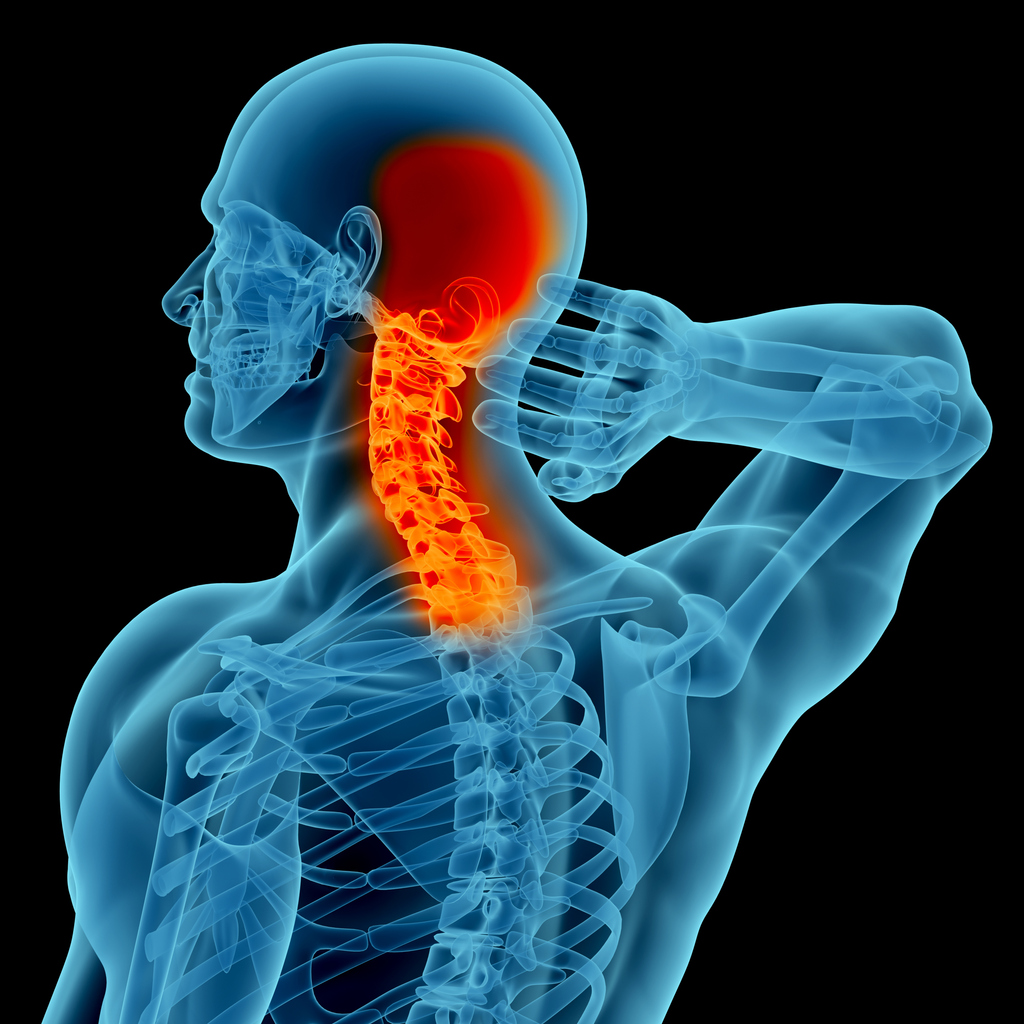Pain
10 Tips to Help Prevent Neck Pain

Approximately 7 out of 10 people will experience neck pain (cervicalgia) at some point in their lives. Neck pain ranges from mild to severe and can be acute (lasting days to weeks) or chronic (lasting longer than three months). The causes of neck pain are varied and diverse. Certain types of neck pain, especially muscle strain, can be prevented or reduced with simple lifestyle changes, including the following:
1. Practice good posture

Proper posture can help prevent neck pain. Poor posture overworks the muscles in the neck and back. Good posture involves maintaining the three natural curves in the spine — one in the neck, one in the mid back, and one in the low back. The ears should be in line with the shoulders, and the shoulders should be in line with the hips.
2. Consider sleep position

On average, people spend one third of their lives sleeping. Proper posture is not only important during waking hours but also during sleep. Sleep position plays a significant role in the prevention of neck and back pain. During sleep, the head and neck should be kept in a neutral position aligned with the chest and back. Sleeping on the stomach with the head turned to one side should be avoided.
3. Use proper ergonomics

Practicing good ergonomics can help prevent chronic muscle tension and neck pain. Proper ergonomics involves designing tasks and adjusting the work or home environment to suit individual capability and limitations, while maximizing comfort and efficiency. For example, use of ergonomically designed equipment, such as an ergonomic office chair or standing desk, can help promote proper posture and circulation and reduces the risk of strain on the musculoskeletal system (muscles, bones, joints, and connective tissues).
4. Stretch

Stretching the neck muscles, especially during periods of inactivity, helps retain flexibility in the neck. Keeping the muscles in the neck pliable can help prevent neck pain.
5. Engage in physical activity

To whatever degree is appropriate and manageable, engaging in physical activity can help prevent neck pain. It’s important to note that a health care professional should be consulted when changing physical activity levels, especially if pain is present.
6. Avoid smoking

Never smoking or quitting smoking is not only good for overall health and longevity, it can also reduce the risk of neck pain. Smoking impairs the transport of oxygen-filled blood to tissues and bones. Decreased blood flow can contribute to degenerative disc disease and osteoporosis.
7. Avoid carrying heavy shoulder bags

Carrying heavy bags that put pressure on the shoulders can cause or increase neck pain. The weight places strain on the neck. If a heavy bag is unavoidable, the weight of the bag should be distributed evenly (e.g., wearing a backpack with the straps placed over both shoulders rather than a messenger bag placed on one shoulder).
8. Consider phone placement

Repeatedly bending the neck for extended periods in awkward positions (e.g., toward the chest while texting or on the shoulder while talking on a phone) can lead to neck pain. Placing the phone in a higher position or using a headset helps keep the spine in a neutral position.
9. Wear braces only if approved by a health care professional

Improper use of a neck brace can actually worsen neck pain. Braces should only be used under the guidance of a health care professional.
10. Hydrate

Proper hydration is important for spine health. Staying hydrated helps keep the discs in the spine moist so they stay pliable and durable, which reduces the risk of neck pain.


















